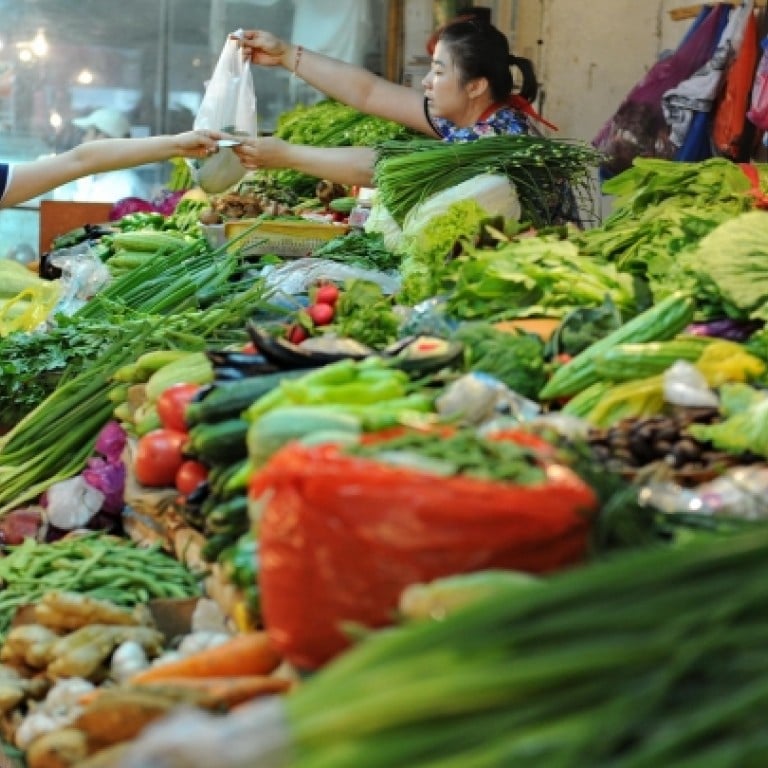
China stuck in inflation policy bind as CPI jumps
CPI jumps 2.7 per cent to four-month high in June, and more modest rises are expected
Consumer inflation on the mainland rebounded to a four-month high last month, but deflation still dogged the factory sector, with sluggish industrial demand restricting the government's policy options.
Analysts widely believe price pressures may rise modestly in the months ahead but not enough to prompt a big shift in policy, as Beijing tries to balance curbing financial risks with bolstering a so far lacklustre economic recovery.
The consumer price index rose 2.7 per cent from a year earlier, accelerating from a rise of 2.1 per cent in May, the National Bureau of Statistics said yesterday.
Inflation was driven by a 4.9 per cent gain in food prices. The jump was partly a result of a low comparison base for the index in June last year, when inflation sank to a 28-month low of 2.2 per cent.
The producer price index, an advance indicator of consumer inflation, remained in a deflationary channel because of overcapacity and easing raw material costs. It fell 2.7 per cent from a year earlier and 0.6 per cent from May.
Headline inflation rates should remain muted and would not pose a hurdle to policy easing, said Yao Wei, an economist at Societe Generale.
However, Yao said: "Beijing is unlikely to resort to any quick fix, which it has been resisting since last year. The trend of soft growth and muted inflation may well last in the near term."
Beijing's target for consumer inflation is about 3.5 per cent this year, higher than the actual rate of 2.6 per cent last year.
Factories last month ran at their slowest pace in nine months, an HSBC purchasing managers' survey showed earlier, in another sign economic growth in the second quarter may have decelerated from the first.
Premier Li Keqiang has refrained from drastically loosening money supply to ease a temporary interbank credit crunch, signalling he is not keen to chase short-term growth.
Money supply has expanded quickly this year. It had grown 15.8 per cent by the end of May. However, much of the fresh credit has failed to flow into the real economy, instead being repackaged as shadow-banking products to avoid strict regulatory scrutiny, fuelling concerns about systemic financial risk.
Lu Ting, an economist at Bank of America Merrill Lynch, expects the central bank to continue its prudent money policy.
"There will be no easing because it recognises a slowdown in potential growth, the need for controlling debt growth and for taming rapidly rising home prices," Lu said. "There will be no tightening, as the government wishes to maintain growth stability and to ease market worries after the interbank squeeze in June."

